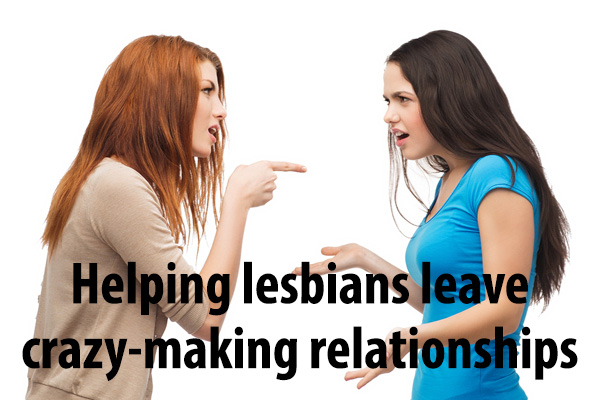
About this course
Life in a society that still shaped by both heterosexism and homophobia creates unique challenges for lesbian and bisexual women in identifying abusive relationship patterns, seeking relief from psychotherapy and natural supports, and ending abusive relationships.
Clinicians may hold stereotypes that intimate partner violence doesn’t occur in same-sex relationships between women, or that, in the absence of physical violence, same-sex relationships do not include cycles of abuse; women in same-sex relationships often hold the same beliefs, which also serves as an impediment to seeking help.
Fears of retaliation from personality disordered partners, risks associated with coming out, concerns that law enforcement and judicial systems will not take a woman’s concerns seriously, and fear of losing support from the minority social network in which a relationship is embedded also impede help-seeking.
Highlights
- An overview of abuse in same-sex relationships between women and special barriers to help-seeking among lesbian/bi/trans women
- Skills for identifying patterns of abuse in same-sex relationships among women
- Why women stay in abusive same-sex relationships, including special cultural concerns
- Language, skills, strategies, and the Five Step Exit Model of behavioral change that will make clinicians more effective with lesbian, bi, and trans women clients seeking therapy for toxic relationships
- Specific practices that will support your client’s emotional, physical and psychological recovery
About the instructor
 Amber Ault, Ph.D., MSW, is a clinical sociologist, psychotherapist, and trainer based in Madison, Wisconsin, specializing in coaching both heterosexual and LGBT partners of people with Cluster B personality patterns. Her academic areas of expertise include LGBT culture, intimate partner violence, and the history of psychiatric diagnoses; her clinical specializations include suicide risk assessment, crisis intervention, trauma treatment, and supporting partners who have survived toxic relationships. She is the author of The Wise Lesbian Guide to Getting Free From Crazy-Making Relationships and The Five Step Exit: Skills You Need to Leave a Narcissist, Psychopath, or Other Toxic Partner and Recover Your Happiness Now.
Amber Ault, Ph.D., MSW, is a clinical sociologist, psychotherapist, and trainer based in Madison, Wisconsin, specializing in coaching both heterosexual and LGBT partners of people with Cluster B personality patterns. Her academic areas of expertise include LGBT culture, intimate partner violence, and the history of psychiatric diagnoses; her clinical specializations include suicide risk assessment, crisis intervention, trauma treatment, and supporting partners who have survived toxic relationships. She is the author of The Wise Lesbian Guide to Getting Free From Crazy-Making Relationships and The Five Step Exit: Skills You Need to Leave a Narcissist, Psychopath, or Other Toxic Partner and Recover Your Happiness Now.
Dr. Ault has taught in the School of Social Work and in the Departments of Sociology and Gender and Women’s Studies at the University of Wisconsin-Madison. She offers on-line and on-the-ground workshops and courses in relationship recovery and LGBTQ dating and healthy relationship formation through amberault.com. She earned her Ph.D. in sociology from Ohio State University and her MSW from the University of Wisconsin. She holds a Wisconsin certified advanced practice social work license.
Cost and credits
The cost for this course is $50 for two hours of instruction. Once you purchase the course, you can view it as often as you want. There is no expiration date.
This course meets the education standards of psychology and counseling professional associations. Contact your professional association to claim credits.
No commercial support was provided to Lovefraud Continuing Education or the instructor for this program.
Learning objectives
This workshop will enable mental health professionals to:
- Identify three barriers to help-seeking for women in abusive relationships with female partners who meet criteria for narcissistic, antisocial, and borderline personality disorders.
- Identify three challenges for clinicians assessing same-sex couples in which one or both partners exhibit narcissistic, antisocial, or borderline traits.
- Identify the prevalence of physical violence in same-sex couples in which one partner meets criteria for narcissistic, antisocial, or borderline personality disorder.
- Identify challenges for women in relationships with partners who meet criteria for narcissistic, antisocial, and borderline personality disorder as they attempt to end these relationships.
- Apply knowledge about the appearance of personality-disordered traits in same-sex relationships to assist partners who have the goal of exiting or ending those relationships.
Program Agenda
Instruction — 55 minutes
- Goals for hour 1 — defining and addressing challenges facing LGBT women with female partners affected by Cluster B personality disorders
- Experiences of women partners of women with “dramatic” personality disorders
- The Dirty Dozen — Common personality disorder traits
- Three Personality Disorder Traits associated with abuse in lesbian relationships
- Research on physical assault and homicide in women’s same-sex relationships
- 14 Barriers to help seeking faced by lesbian and bisexual women
- 11 strategies for reducing barriers to seeking help for lesbian and bisexual women
Break — 5 minutes
Instruction — 50 minutes
- Goals for hour 2 — helping partners exit abusive relationships
- Working with partners — challenges for clinicians
- 8 reasons why people stay in destructive relationships
- What clients in abusive relationships want from therapists
- Stages of change model
- The Five Step Exit Model for leaving abusive relationships
- Contemplation
- Therapist’s tasks in contemplation
- Examples of therapeutic contemplation practices
- Preparation
- Therapist’s role in preparation
- Multidimensional issues in preparation
- Examples of preparation practices
- Action/Execution
- Therapist’s role in action/execution
- Improvisation
- Therapist’s role in supporting client her partner reacts
- Recovery
- Therapist’s role in recovery
- Examples of recovery practices
- Contemplation
Questions and answers — 10 minutes
Final quiz
Risks and Limitations
- The accuracy and utility of the statements included in this presentation are based on referenced materials from reliable sources that are accessible and obtainable by all.
- The limitation of the content presented herein is that the results of execution have not been measured, therefore, expectation of outcome is not predictable.
- It is presumed that professionals executing the guidelines presented herein will apply such holding to the precise standards of their professional code of ethics, to reduce risk of ethical violations. As in all therapeutic interventions that may provoke emotional triggering, the professional may be required to perform risk assessment for suicidality, homicidality or other incident requiring emergency psychiatric services.
- The presenters have no commercial support to report.
Preview of this course
Take this course and learn how to overcome the cultural patterns and stereotypes that make it difficult for women in abusive, same-sex relationships to escape.
Customer reviews
Add your review — click and scroll down

